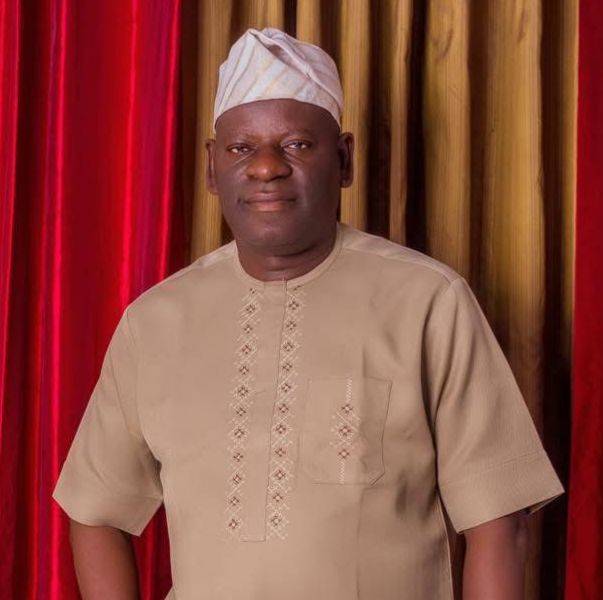By Tunji Adegboyega
This must be dismantled and replaced with a realistic and equitable one
With regard to wages or salaries, successive Nigerian governments have been behaving like the woman who has only one child, and when the child was fighting outside and the matter was reported to her, she asked: which of my children? Which one? How? How many children does she have to warrant that sort of question?
That is exactly the same way Nigerian governments and indeed, almost all employers in the country have been deceiving themselves over salary matters for years.
They pay wages that cannot take people home and call them take-home pay. Unfortunately, the politicians in the National Assembly who become so stingy when handling other people’s salary matters spoil themselves with some of the most stupendous wages and allowances that would qualify for one of the most obscene in the world.
While some state governments and even private employers are trying to do more for their workers, others are lukewarm.
Just last week, the Nigeria Labour Congress’s (NLC), president, Joe Ajaero, and the Nigeria Employers Consultative Association (NECA), commended the Imo and Ebonyi state governments for raising minimum wage from the N70,000 approved by the Federal Government in July, 2024, to N104,000 and N90,000, respectively.
Ideally, this should be the spirit: the Federal Government’s minimum wage is, as its name implies, the minimum anywhere in the country. Employers of labour are at liberty to go beyond that amount. But they cannot pay less. The two state governments said they are able to raise workers’ salaries because federal allocation to them has increased substantially.
This is a truth some state governments do not want to get out there. State governments, as well as other tiers of government have been receiving substantially more revenue from the centre since President Bola Tinubu took over in May, 2023, as a result of withdrawal of fuel subsidy. But, despite this increased monthly allocations, not much is happening in some states.
This is why I join the NLC and NECA in commending the two state governments. Investment in human resource is a meaningful one and workers that are relatively comfortable should be able to put in more to justify their pay.
I have never believed, as labour does, that state governments must pay the same salary across the country. One, states are not equally endowed. Two, they operate in different economic milieus. While food and some other items are relatively cheap in some states, they are also relatively expensive in others.
But, the question now is; do Nigerian workers need as much as N70,000 or N90,000 or even N104,000 minimum wage to be happy? I don’t think so. Just that things have gone haywire.
In the 1970s, the N96 or so that school certificate holders in the country earned monthly then was always enough for people in that category. I remember I bought eggs at the then prestigious Kingsway Stores, even as a school certificate holder, not just because I worked there after my secondary education , but because then, meat pie at Kingsway (the equivalent of today’s Shoprite, etc), was sold in kobo (I think 25 kobo apiece) and its size doubled what now goes for the average meat pie in any reputable eatery of the same standard with Kingsway Stores then.
Even though Kingsway was an elite departmental store, it is unlike the Shoprites of today because many people, including school certificate holders, could go in there and have snacks, cold or hot beverages and coffee, electronics and what have you. Today, many graduates see the Shoprites only from outside, or even when they manage to enter, all they do is window-shop, hoping that someday before their time at this end would expire, they too would one day be able to walk in and out of the place, clutching something of substance, or having some people carry whatever they purchased from the place for them.
For many, the way things are structured, that may remain eternal pipe-dream unless and until some of the measures being taken by the government begin to yield results.
This is why I have always argued that labour leaders should insist on good governance. Not incessant wage increases.
But they would not listen. Today, workers have the wads of naira notes in their pockets but can only buy little with them. I was far better off with the N400 that I first earned as a graduate in 1985 than today’s graduates earning N150,000 per month.
A colleague who just returned from abroad told me that the price of a car he ordered a few years ago remains virtually the same today, but when it gets here, that is where the problem lies because of the exchange rate.
If Nigerian workers had been insisting on good governance, it is not unlikely that what is hitting us hard now would not have been this serious because there would have been incremental adjustments that would have made things easier for us to swallow now.
The truth of the matter is that what we call salary today, starting from the president down to the least paid worker, is ‘lie lie’ salary. How can our president be earning N1.5 million monthly? To do what? We need no one to tell us this is unrealistic. That of the National Assembly is even worse. Ask 100 members how much they earn monthly and you will get 100 different answers. Nigeria is probably the only place in the civilised world where such a matter of public concern is shrouded in secrecy.
I do not know in how many state capitals people earning N70,000 can live if they must enjoy electricity, pay school fees, spend on transport for a family of at least four, pay for medicals, and do other routine things.
Let nobody tell me we were able to enjoy most of these things before because they were being subsidised. Was the government also subsidising the bumper meat pies that we were eating then at Kingsway Stores? Was it subsidising the Hing’s singlet (unarguably one of the best brands then) that we were buying on the streets of the popular Balogun Market in Lagos at the time, for almost peanuts? Were they also subsidising the Peak Milk that some of us would always insist on, as against the Carnation and other brands that we considered inferior?
Come on, something is wrong somewhere. It is that thing we should find and fix. The Revenue Mobilisation Allocation and Fiscal Commission (RMAFC) should get down to serious business and stop this unrealistic pay fixes.
It is because the National Assembly members are not comfortable with whatever the commission gave them that they found a solution to their wage problem through some other ingenious means. Recently, in spite of the economic challenges the poor are facing; they even mooted pay rise for themselves.
Meanwhile, lesser Nigerians have to cope with the miserably low pay the same National Assembly approves for them.
We need to do something about this lopsided, ‘lie lie’ wage structure before it does something to us because it is not just inequitable, it is ungodly. It is a recipe for tempting even people who do not know how to steal. It is only a matter of time before we start expanding our prisons because we would have cause to receive more prisoners; not prisoners by choice, but prisoners by societal injustice.
Professors earning N500,000 to N600,000 a month in this economy is scandalous? To do what? Many people would have stomached it if this is the general trend but a situation where conscientious workers cannot get commensurate reward whereas a few others cream off the resources at the expense of millions of others is unsustainable.
Many of us who disagree with Ajaero often do so not because we do not understand his point, but, first, because, we know some of his protests had beyond labour undertones. And, two, because contemporary labour matters should now be more of brain than brawn and ‘gra gra’. Ajaero does not seem to be ready to admit that labour leaders would be judged in the final analysis, not by the number of strikes they mobilised, but by the impact their tenure had on workers’ welfare.
Ajaero needs tutorials on how his forbears in the labour struggle, like the inimitable Pa Michael Imoudu, and indefatigable Hassan Sunmonu, did it so successfully.
One of the reasons some people get so much to steal from the public till is because we have too much idle funds all over the place. Otherwise, why would someone be able to steal the humongous amounts of money we used to hear (some would tell you public funds are still being stolen) running into multiples of millions and sometimes billions (as if these billions are Japanese Yen), without the country knowing until years after? Something must be wrong somewhere.
We may argue that the loopholes are being blocked, but the most important deterrence would be to punish those who pilfer our funds, to the full extent of the law. Often they don’t get their full comeuppance. Rather, they are given slaps on the wrist by allowing them to do plea bargain which allows them to return only a fraction of what they stole and keep the rest to themselves.
Unfortunately, while these people who stole more than their three generations require get this kind of soft treatment, the poor man that stole a goat or something because he is actually hungry gets years behind bars; sometimes with hard labour. No plea bargain. Well, as one of our former first ladies used to say, ”there’s God o.”
Nigeria’s ‘lie lie’ salary reminds me of an advert that newspapers used to carry some years ago. The ad had to do with a company that paid peanuts as salaries. At the head of its management was the lion calling the shots, flanked by other dangerous animals. Your guess is as good as mine as to what that company would turn out to be.
That is the Nigerian situation with regards to its wage structure. While I have no problem with some sectors earning extremely well because of the sensitive nature of their jobs, what is required, in my view, is a holistic review of wages for all such that every Nigerian will, like it used to be when we were growing up, be able to afford the basics, particularly food and shelter.
If for one reason or the other that is not feasible now, it should be on government’s pending priority list.














